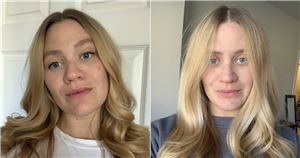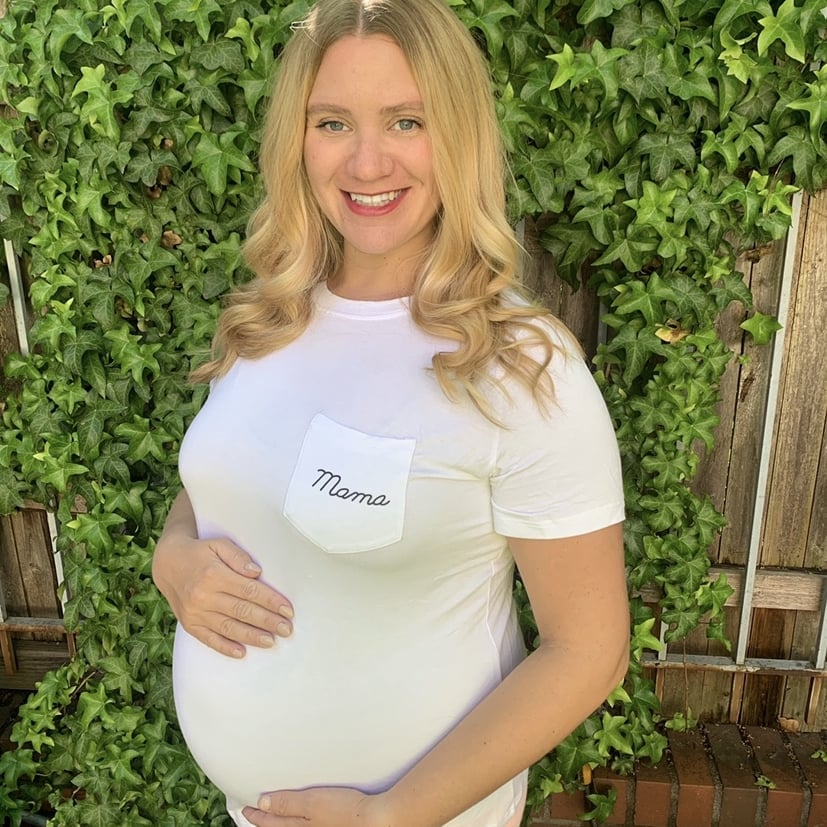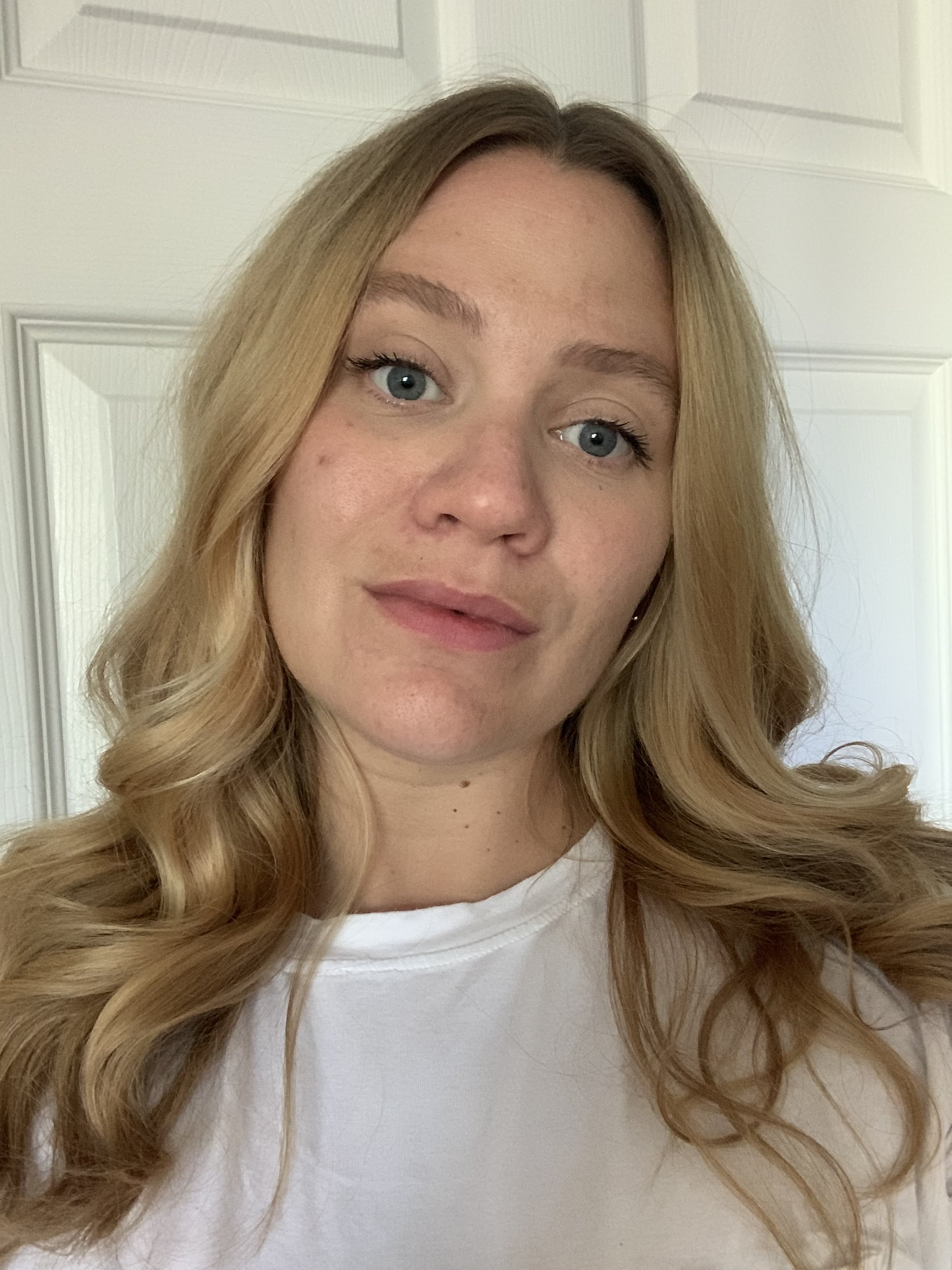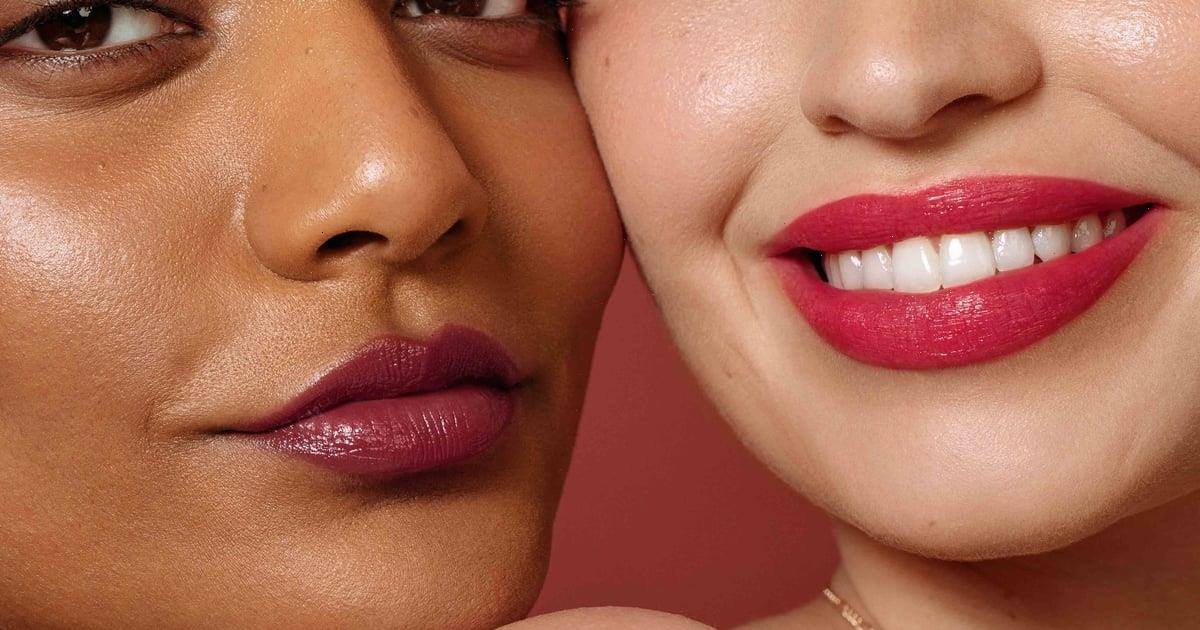I can’t count how many times I have been told that I’m “glowing.” The compliment seems to slip off one’s tongue like turpentine around pregnant people. And while I know it’s often said with good intention, I’ve wanted to call BS every time someone has uttered these words to me. Because unless you are referring to my super-shiny new complexion, I know that I’m not “glowing.” Instead, while waiting for my belly to pop and that promised “pregnancy glow” to appear, I’ve been met with a physiological change I wasn’t expecting: acne.
No one warned me that pimples would start popping up like wildflowers after I conceived. In fact, it was quite the opposite. Based on conversations with friends and colleagues — not to mention all the airbrushed faces in maternity advertisements and filtered images on Instagram — I was looking forward to having the best skin of my life. It wasn’t until I sought answers from Google that I learned how common pregnancy acne is. Research shows that one out of every two people can expect to develop acne during pregnancy.
For me, the blemishes first started to appear at eight weeks, right around the time of my first doctor’s appointment, and soon I noticed the texture of my skin had completely changed — it had become rougher and oilier than before. My pores were more prominent, my cheeks covered in red splotches, and my face dotted with painful pimples. “Some people get lucky with great skin during pregnancy, but many experience problematic skin changes,” my dermatologist told me when I first went to her for advice.
These changes have to do with hormone surges during pregnancy, she explained. As the body prepares the uterus for a baby, it produces more progesterone, a hormone known for triggering excess oil. For some, this secretion is lighter, making the skin appear supple and radiant. For others, like myself, the oil is thicker and can clog pores. Couple this with the fact that pregnant people can no longer use common skin-clearing treatments like retinol and salicylic acid, plus newfound stress and eating habits (I could stomach only carbs during my first trimester), and we’ve got the perfect recipe for blemishes.
It can be incredibly frustrating, and to add insult to injury, breakouts typically continue, or in some cases worsen, as pregnancy progresses. While I did experience some relief during the second trimester, my face is starting to flare up again as I approach the third. All that said, I’m not looking to throw anyone into a skin panic — moms-to-be have enough to worry about. It’s just that I find solace in commiserating, and I wish more expectant mothers felt comfortable sharing their skin struggles, if only to help those closest to us prepare for what’s to come.
That’s the thing about pregnancy, though. There is a certain shame that comes with self-consciousness. It’s as if we are expected to be so grateful for this beautiful blessing that we have to smile through the less-than-pleasant side effects. The two are not mutually exclusive. We can appreciate the wonderful work our bodies are doing, accepting the changes that come with that, while still feeling insecure about stretch marks, puffiness, or, in this case, pimples.
While there’s certainly no reason to be ashamed of acne, we don’t have to walk around pretending it doesn’t bother us, either. There are ways to safely treat pimples while pregnant and lessen the occurrence of future breakouts. For starters, make an appointment with a dermatologist, who will recommend a personalized treatment plan with pregnancy-safe topicals. Mine suggested bakuchiol, a plant-derived alternative to retinol; a noncomedogenic mineral sunscreen; a mild cleanser; and the occasional use of chemical peels with glycolic acid to gently exfoliate and promote skin cell turnover.
With some consistency in this routine, I’ve seen significant improvement. Diet changes and stress-reducing habits like walking and yoga have really helped me manage breakouts, too. But the reality is there is nothing that will completely “cure” pregnancy acne, and I’ve found the best way to cope with it is by treating myself with compassion. There are going to be moments when I don’t feel comfortable in my own skin — and that’s OK. When I start to feel insecure about the blemishes on my face, I move my focus to my belly and remind myself that these feelings are temporary.
Because at the end of the day, breakouts will come and go, but this love I feel for my baby girl is going to last a lifetime.
Source: Read Full Article





